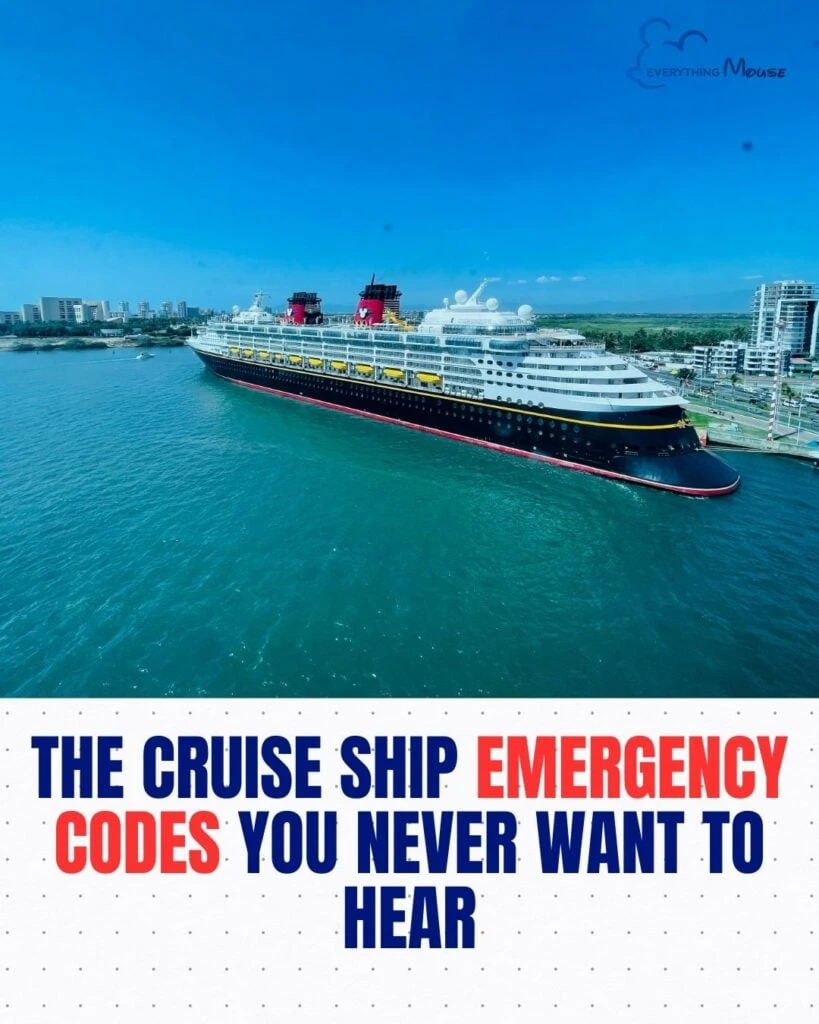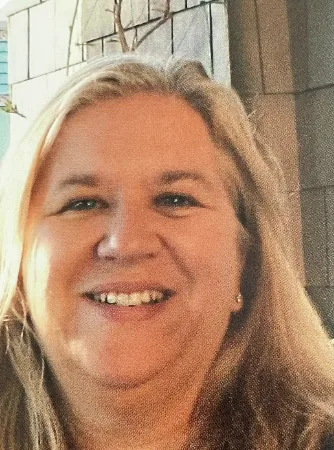For most of us, a cruise vacation means endless buffets, Broadway-style shows, and sunny days on deck.
But behind the scenes, cruise ships operate more like floating cities — complete with hospitals, fire brigades, and security forces.
With thousands of passengers and crew all living together on the water, safety depends on order, calm, and fast communication when things go wrong.
That’s where emergency codes come in.

Cruise ships use a secret language of short, often harmless sounding words like Alpha, Bravo, or Oscar to alert trained crew members to medical emergencies, fires, or even man overboard situations — without alarming passengers.
I remember years ago sailing on a Disney Panama Canal cruise and hearing the Captain announce “Bright Star” and this first got me wondering about what all of these codes mean.
This particular announcement on a DCL ship means that there is a serious medical emergency which requires crew support.
While the exact phrases can vary by cruise line, many codes overlap or share similar meanings. Here’s what those mysterious announcements actually mean.
Why Cruise Ships Use Codes in the First Place
Imagine you’re enjoying dinner on board and over the loudspeaker you hear:
“Attention: A passenger has collapsed with a heart attack in the atrium. Please clear the area.”
Panic would spread almost instantly.
Guests may crowd the space, block access, or even rush to lifeboats. To avoid this, cruise lines use discreet codes that alert trained personnel while keeping passengers calm.
For crew, these aren’t secrets but part of mandatory emergency training that includes first aid, crowd management, firefighting, and lifeboat drills.
For passengers, the codes are intentionally vague — but knowing a few may give you peace of mind, or at least satisfy your curiosity the next time you hear one.
Related: Disney Wish Man Overboard False Alarm
The Most Common Cruise Ship Emergency Codes
Code Alpha – Medical Emergency
When you hear Code Alpha, it means someone onboard needs urgent medical attention. Sometimes you’ll hear “Alpha, Alpha, Alpha” or even “Code Mike” instead, depending on the cruise line.
This could be anything from a minor accident to a life?threatening heart attack. Often the announcement is followed by a location: “Code Alpha, Deck 6, midship.”
Special variations include:
- Code Sierra: a stretcher is needed.
- Star Code or Code Mike: alternate medical alerts.
- Operation Brightstar or Rising Star: a very serious or fatal medical situation – this is used by DCL.
- Code Blue, Black, or Pink: used in some places to distinguish between types of medical emergencies (serious illness, multiple casualties, or pediatric situations).
Code Bravo (or Red Party) – Fire Onboard
I have heard this at 2 am on a DCL cruise. That wasn’t a great thing to wake up to! Fortunately, whatever it was, we never knew anything more about it.
Fire is one of the gravest risks at sea.
- Meaning: Fire has been detected somewhere on the ship.
- What happens next: Trained firefighting crews are deployed, others rush to stations to assist with evacuation if needed.
- Variants: Some lines replace Bravo with “Red Party.”
Even small fires are taken seriously — if you hear Bravo, know that the crew is moving fast behind the scenes.
Code Charlie – Security Threat
Code Charlie means a security situation: possible weapons, bomb threats, or even outside threats like piracy. On some ships, triple repetition — “Charlie, Charlie, Charlie” — signals a heightened emergency.
In calmer situations, Charlie may also be used to reference serious weather conditions requiring extra measures.
Code Delta – Biohazard or Structural Emergency
Delta can mean two things depending on the cruise line:
- A biohazard problem, such as exposure to virus or toxins.
- Structural or mechanical damage, including potential hull breaches.
In all cases, Delta indicates a serious life?threatening risk that requires immediate response.
Code Echo – Collision or Drift
“Echo, Echo, Echo” is alarming. It means the ship has started to drift or faces the risk of colliding with another vessel or object. In some circumstances, it may also be used for dangerous high winds while the ship is docked.
If repeated three times, the code signals the navigation team is taking emergency action.
Code Kilo – Crew to Emergency Stations
Kilo tells all crew to report to their assigned positions immediately. Most often, guests will hear this during crew drills while in port.
Passengers don’t need to take action, but you may notice staff moving quickly to specific posts.
Oscar, Oscar, Oscar – Man Overboard
Perhaps the most chilling announcement at sea, “Oscar, Oscar, Oscar” (sometimes shortened to Code Oscar or referred to as Mr. MOB) means someone has gone overboard.
The ship will slow or stop, lifebuoys are deployed, rescue craft launched, and crew begin coordinated search and rescue. Security teams may close off public areas or restrict access to outer decks.
If you ever do hear this code while on deck, the best thing you can do is scan the water — and if you spot someone, point and keep your eyes on them until help arrives.
Related: Father Jumps in to Save Child on Disney Cruise
Operation Rising Star – Death Onboard
This discreet code signals that someone has died during the voyage. Cruise ships are prepared for this sad reality and are required to carry proper facilities.
It is often used following a Code Alpha when medical attempts were unsuccessful.
Sanitation Codes – Purell, PVI, Yellow, or Red
Maintaining hygiene onboard is critical, so sanitation codes are surprisingly common.
- Purell, Purell, Purell: cleanup needed in a public area — often vomit.
- PVI (Public Vomiting Incident): essentially the same, used to avoid alarming guests.
- Code Red: outbreak of norovirus or contagious disease, triggering enhanced sanitation measures.
- Code Yellow: general sanitation concern like spills or broken facilities.
Code Zulu – Fights Onboard
“Zulu” refers to disturbances or physical fights between passengers or crew. Security responds immediately to de?escalate the situation.
Other Codes You Might Hear
- Code Green: All clear; normal operations can resume.
- Mr Skylight: Minor emergency handled by crew.
- Code Papa: Environmental hazard such as an oil or fuel leak.
Why Codes Differ Between Cruise Lines
There’s no single international handbook that dictates which words must be used. Instead, each cruise line develops its own vocabulary, although many share common terms.
What matters isn’t the word itself but the training behind it.
Regardless of terminology, crew have regular practice drills so that hearing a code prompts immediate, automatic response.
Codes are also designed carefully to avoid confusion with ordinary announcements or onboard activities. They sound just ordinary enough that a casual passenger might not notice — but they stand out instantly to trained crew.
What Passengers Should Do
Hearing a code while on vacation can be unsettling, but here’s what to keep in mind:
- Stay calm. The code isn’t for you; it’s for the crew.
- Don’t interfere. Avoid rushing toward the area mentioned, as this could block staff.
- Wait for clear instructions. If passengers need to act, the Captain will make direct announcements in plain language.
- Use common sense. In rare cases, like a man overboard, keeping eyes on the person in the water can help.
In almost all other scenarios, the best passenger response is simply to carry on as instructed and trust the crew’s training.
When the Codes Become Critical
While codes are a communication tool, they can take on added importance in unfortunate incidents. If a medical emergency isn’t responded to quickly after a Code Alpha, or fire procedures aren’t followed during a Code Bravo, investigations later may review what happened and when the code was sounded.
For most guests, though, they are simply background noise — faint words over the PA while life onboard continues as normal.
The Secret Language of the Seas
For cruise fans, knowing the meaning of codes adds a bit of “insider knowledge” to the vacation. You may never want to hear them, but if you do, you’ll understand what’s going on and appreciate the seamless work of the crew.
These short, cryptic phrases are part of a larger safety net: international safety agreements, U.S. Coast Guard inspections, lifeboat drills, and round-the-clock emergency readiness. Together, they make modern cruising one of the safest ways to travel.
No passenger books a cruise hoping to hear “Oscar” or “Delta” broadcast over the loudspeakers. But emergencies can happen anywhere — on land or at sea.
Knowing what these codes mean won’t change the outcome, but it can help you feel informed and reassured. More importantly, it highlights just how ready your ship is for the unexpected.
So the next time you hear a cryptic announcement like “Bravo, Bravo, Bravo,” you’ll know not to panic — just to let the professionals do their job.
And when “Code Green” finally echoes through the ship, signalling all clear, you can return to your lounger, cocktail in hand, confident that you are in safe hands at sea.

Alison Meacham is the founder of EverythingMouse Disney Blog. For over 15 years she has shared her love of Disney Parks, Disney Cruises and Universal Orlando. In over 30 years of Disney Travel she has spent countless months in Disney Parks and has sailed on over 60 cruises. A British native and now a United States resident she splits her time between California, Florida and the UK. And spends a serious amount of time sailing the seven seas. She helps over 250,000 people per month follow their Disney travel dreams.
